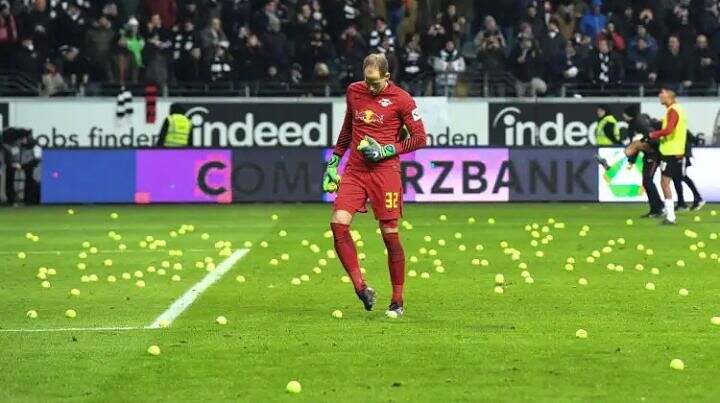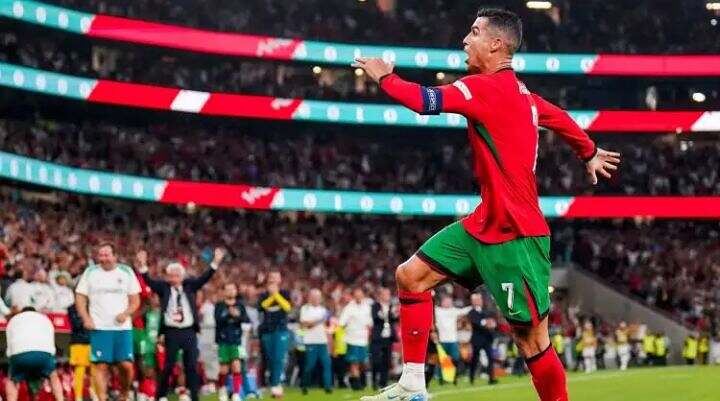How German Fans Interrupt Monday Night Football with Protests and Tennis Balls

The fixture list is a tool used by the paymasters, which is an unpleasant reality of modern football. Suddenly, tradition becomes a scheduling annoyance when you sign a TV agreement.
However, such frank economic reasoning lost in Germany when it clashed with a more obstinate factor: the culture of the supporters.
It is not about pyrotechnics or glitzy social media ads to tell the tale of how Bundesliga terraces were empty on a Monday night and, after a few seasons, contributed to the end of Monday night kick-offs.
Trending
Tennis balls on the field, empty seats, and whistled halves are all examples of silent, concerted refusal until the schedule-makers pay attention.
Fans demonstrated that you can still influence the game when you work together, and the DFL agreed to eliminate Monday games in the upcoming TV cycle.
With the 2017–18 rights cycle, Monday night football made a comeback in Germany. It was a clever method for broadcasters to fit an additional high-profile match into the schedule. It was offensive to many supporters.
A Monday off from work would now be necessary for away-day travel, which already costs money and time.
The culture was being exchanged for a few euros, according to fans who loved the weekend ritual of games. Parts of fan ire solidified into organised action at the beginning of 2018.
Hundreds of people left the terraces prior to kickoff, unrolled banners behind the goal to postpone the start of a game, and then threw tennis balls into the field to stop play. These groups, like those around Eintracht Frankfurt, made a bold initial move.
The tone was completely intentional, partially provocative, and partially parodic. “No” to a fixture slot that was born out of marketing calculations rather than supporter life was the message.
Low-tech, stereotypically German techniques included mass non-attendance, quiet protest, and, when theatre was required, a volley of tennis balls to halt play.
Fans tried to obstruct TV coverage during Nurnberg’s November match against Borussia Dortmund by attacking the broadcast area and throwing objects at the pitch during set pieces.
This practice garnered media attention because it demonstrated the extent to which fans were willing to go in order to express their displeasure to executives and cameras alike.
The impact was quantifiable and instantaneous. Tens of thousands less people than usual attended Dortmund’s home game on Monday, making it one of their lowest attendances in years.
Any club or rights-holder would prefer not to have that kind of damage shown in their ratings and sponsorship decks. One could be tempted to characterise those protests as merely symbolic. They weren’t. The pressure was tactical.

Hans-Joachim Watzke, the CEO of Borussia Dortmund, stated the numbers simply: Mondays’ business case is doomed if 80% of Germans oppose the plan and stadium attendance drops from 81,000 to 54,000.
They were a commercial recognition that viewership is a valuable resource that broadcasters cannot overlook in live sports. The screenplay drew the fans in.
Coordinated silences during kickoff, black-out displays, and banners that said “No to Monday Night Football” were among the protest tactics that were used.
Groups of supporters released statements condemning league organisers and teams of “sacrificing our interests for the smallest of financial gains.” They contended that the new slots treated fans more like consumers to be scheduled than like members to be consulted.
In Germany, where clubs’ member-led identities and the 50+1 rule are cultural touchstones, the linguistic framing of fans as members rather than customers is essential.
The demonstrations continued to get worse until they were a recurring, humiliating aspect of the season. Referees and streamers had to halt games, broadcasts were cut off, and stadium stewards were left to pick up tennis balls.
The current situation was detrimental to both the match’s spectacle and the corporate narrative that such transactions were just “good business.”
The calculation was different when the DFL and clubs met to work out the next round of media rights. Anger was no longer a passing fad; it had turned into a quantifiable business risk.
By moving those TV slots elsewhere in the calendar and essentially giving the fans the benefit of the doubt, the DFL announced in November 2018 that Monday fixtures would no longer be played in the 2021–2022 season.
It’s critical to understand the significance of the win and its limitations. Fans didn’t convert football into a charming, sentimental artefact or ban all odd kickoff timings. Instead, they compelled the league and media outlets to honour the supporters’ daily realities.
The compromise demonstrated that scheduling is a two-way street: while TV money is important, the human cost of rearranging a weekend ritual to a worknight is as significant.
In the aftermath, Michael Zorc, the sporting director for Dortmund, remarked that the problem was “still an issue for the fans, and we must accept that.”
The expression “accept the fans’ grievance” is a shorthand for a more general reality: acknowledge that supporters continue to be an important constituency.
The demonstrations in Germany showed that well-planned, mainly nonviolent fan action can alter laws.
Yes, the tactics were disruptive, but they were specifically targeted and frequently linked to the economic justification that empty stands indicate a commercial failure and that live sport’s economics are fragile enough that broadcasters will pay attention if the show they pay for starts to seem unworthy.
The example from the Bundesliga demonstrates pragmatic protest as opposed to merely performance protest. After selecting the lever, fans firmly pulled it and departed the boardroom to perform the calculations.
The image that will linger is straightforward: a Monday with a stadium that is otherwise packed but has vast holes in it, representing the quiet pressure of thousands of people casting their ballots with their feet.
TV execs won’t find it comfortable, and it’s not a lovely theatre, but it works. It wasn’t a hashtag or a petition that got the DFL to cut Mondays from the upcoming TV deal.
It was the result of ballots and bodies, of stones thrown into a still pond, and so on, until the individuals who made the fixture list heard about it.
Even though football’s commercial machinery is massive, it can yield when those who care about it demand that they won’t be disregarded any more.
The Bundesliga protests serve as a reminder that the best metrics still start with the people in the seats, even in a time when sports increasingly gauge success in clicks and broadcast hours.






